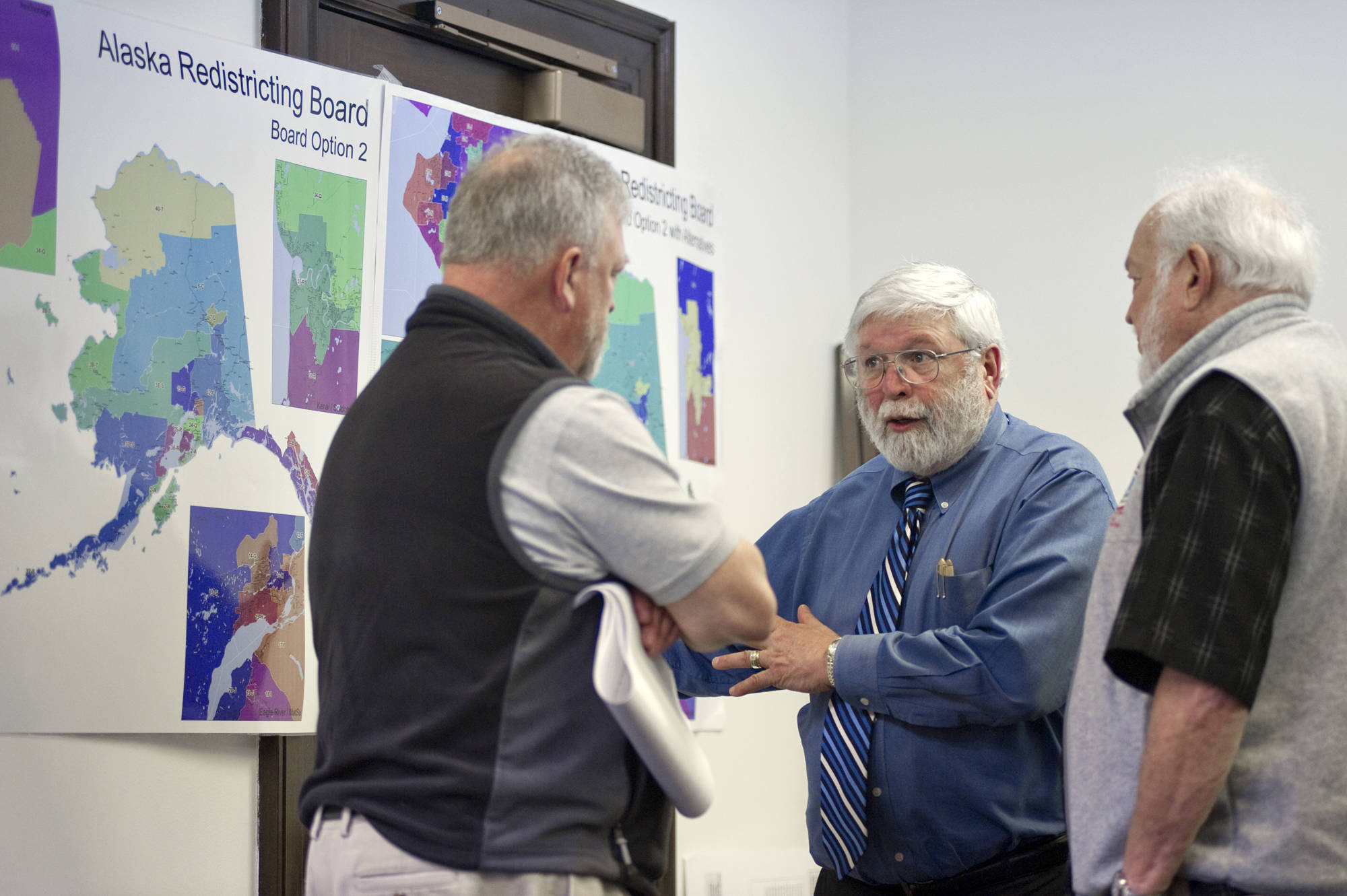The state of Alaska is asking the U.S. Supreme Court to rule partisan gerrymandering illegal.
On Tuesday, the Alaska Department of Law announced it has joined 16 other states and the District of Columbia in filing an amicus brief with the court. The brief is effectively a document saying Alaska agrees with the argument filed by the plaintiffs.
That argument? States shouldn’t be allowed to draw the boundaries of political districts to benefit a political party.
“I fully support the Attorney General in signing on to this amicus brief,” said Gov. Bill Walker in a prepared statement. “Drawing district lines only to maximize one political party’s power, without any other reasonable justification, is a disservice to the voters and to democracy. As I’ve said before, no one party has the monopoly on good ideas, and government needs all the good ideas it can get.”
The case in the Supreme Court, known as Gill v. Whitford, is likely to have massive consequences as states prepare to redraw their districts following the 2020 U.S. Census. After the 2010 census, Wisconsin redrew the state’s districts to the advantage of Republican candidates. This allowed Republicans, who earned 47 percent of the votes in the state’s 2012 legislative elections, to take 60 percent of the Legislature’s seats. In 2016, Republicans earned 53 percent of the state’s votes and took 64 percent of the Legislature’s seats.
In 2008, before the redistricting, Republicans earned 43 percent of the votes and had 46 percent of the seats.
The U.S. Supreme Court will decide whether this type of redistricting is legal.
Oral arguments are scheduled for Oct. 3, and the case will likely be decided over the winter.
The other states in the amicus brief are Oregon, California, Connecticut, Delaware, Hawaii, Illinois, Iowa, Kentucky, Maine, Massachusetts, Minnesota, New Mexico, New York, Rhode Island, Vermont, Washington and the District of Columbia.
• Contact reporter James Brooks at james.k.brooks@juneauempire.com or call 523-2258.

